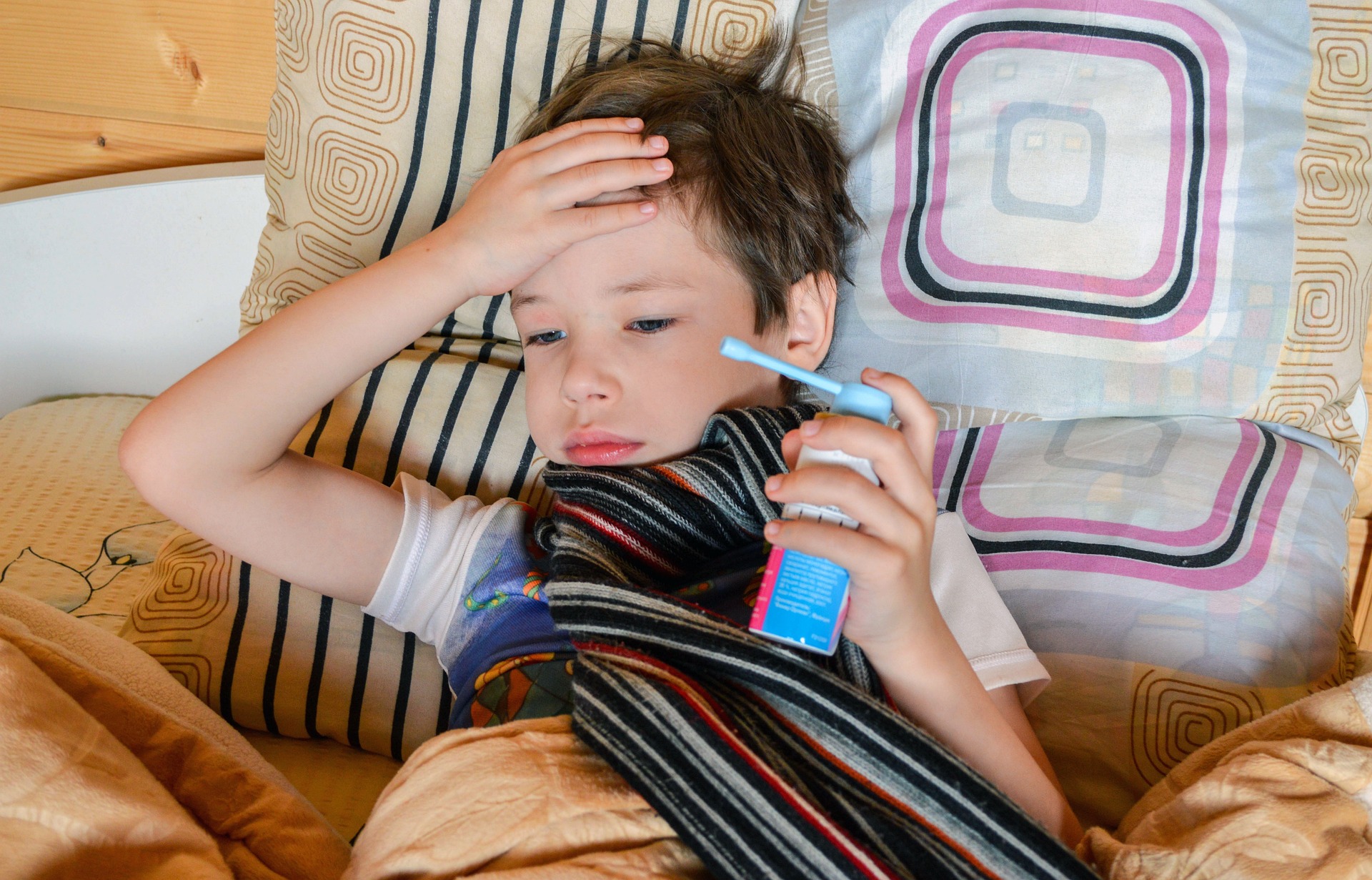Urgent Care
Diagnosis, treatment, and services for your everyday medical needs such as flu shots and lab work.
Feb 13, 2023

Sometimes your child will be sneezing or wheezing, and you might shrug it off, believing it to be nothing more than a simple allergy. However, there is the possibility that your son or daughter may have a health issue – asthma. This can cause bothersome daily symptoms that interfere with play, sports, school, and sleep, making unmanaged asthma dangerous. Unfortunately, childhood asthma can’t be cured, and symptoms can continue into adulthood, but with the right treatment and by staying informed, your child can keep their symptoms under control and prevent damage to growing lungs.
Asthma is a chronic lung disease. It affects your airways and the tubes that carry air in and out of your lungs. When you have asthma, your airways can become inflamed and narrowed. This can cause wheezing, coughing, and tightness in your chest. When these symptoms get worse than usual, it is called an asthma attack or flare-up.
Typically, asthma starts during childhood, usually before the age of 5. Asthma is something many children suffer from and is actually the most common chronic disease in childhood. Depending on the severity of their asthma, it can cause children to miss school and even end up in the hospital.
Even though there are many different variables that may cause a child to suffer from asthma, a few of the most popular reasons would be being exposed to secondhand smoke when their mother is pregnant with them, genetics, and family history. Children are more likely to have asthma if one of their parents has it, especially if it’s the mother, or having other diseases or conditions such as obesity and allergies.
The most common symptoms of asthma are frequent coughing that worsens when your child has a viral infection, occurs while your child is asleep, or is triggered by exercise or cold air, a whistling or wheezing sound when breathing out, shortness of breath, chest congestion or tightness, and rapid breathing. It’s important to mention that your child may experience other symptoms that are disguised as something different and if these issues don’t seem to be going away, contact their healthcare provider.
It can be tricky to diagnose asthma in children, especially if they are toddlers. Asthma has similar symptoms as other childhood conditions and some children may not demonstrate symptoms very often, so it may seem like they are having respiratory infections instead. However, if your healthcare provider were to test your child for asthma they would do a physical exam, check your child’s medical history, take a chest X-ray, and do lung function tests. If you have a young child who cannot do lung function tests, their healthcare provider may suggest doing a trial of asthma medicines. This involves giving your child the recommended medicines for several weeks to see whether the symptoms get better.
Depending on the severity of your child’s asthma their treatment will vary. There is also a chance their allergist may prescribe them two different medications. The first is quick relief. All children with asthma need quick-relief medicine to treat coughing, wheezing, shortness of breath, or an asthma attack. Your child should always have this medicine with them (typically an inhaler) and use it at the first sign of symptoms. The second is preventative controllers. Many children with asthma also need to take a controller daily to prevent asthma symptoms and attacks. Your child may need a controller if they are using quick-relief medication too often or frequently need oral corticosteroids such as prednisone for asthma attacks.
It’s best to take your child to their healthcare provider if you see any signs of asthma because early treatment will help control their symptoms and possibly prevent asthma attacks. If you notice coughing that is constant, intermittent, or seems linked to physical activity, wheezing or whistling sounds when your child breathes out, shortness of breath or rapid breathing, complaints of chest tightness, and repeated episodes of suspected bronchitis or pneumonia take your son or daughter to their provider for proper testing. If your child is diagnosed with asthma, creating an asthma plan can help you, family and friends monitor their symptoms and know what to do if an asthma attack occurs.
In severe cases, you might see your child’s chest and sides pulling inward as he or she tries to breathe. They might also have an increased heartbeat, sweating, and chest pain. Seek emergency care if your child must stop in midsentence to catch his or her breath, is using abdominal muscles to breathe, or has widened nostrils when breathing in. Even if your son or daughter hasn’t been diagnosed with asthma, seek medical attention if he or she has trouble breathing. Although episodes of asthma vary in seriousness, asthma attacks can start with coughing, which progresses to wheezing and labored breathing.
The best way to prevent an asthma attack is with careful planning and avoiding asthma triggers such as allergens and irritants that trigger asthma symptoms. Exposure to tobacco smoke during infancy is a strong risk factor for childhood asthma, as well as a common trigger of asthma attacks. It is also important to encourage your child to be active. If their asthma is well-controlled, regular physical activity can help the lungs to work more efficiently. Lastly, urge a proactive lifestyle. Being overweight can worsen asthma symptoms, and it puts your child at risk of other health problems.
Asthma is a tricky illness because, for some, it’s more serious than it is for others, and if your son or daughter is one of the lucky ones who only have minor issues, they can potentially evolve into more serious problems later in life. It is your duty as a parent to stay on top of it so your child can learn and adapt to any potential new symptoms, but not to worry, the staff at Chai Care will always be here to help your child with any everyday health issue that they find themselves facing!
* Legal disclaimer: The content of this article and the entire Chai Care blog is for educational purposes only; it does NOT constitute medical advice and must not be considered as such. Please consult a medical professional regarding any symptoms or health concerns you or your loved ones.

Nobody wants to spend hours sitting in a crowded emergency room, especially when you or your loved ones…

In today’s fast-paced world, time is a precious commodity, especially when it comes to healthcare. At Chai Care,…

Healthcare is the cornerstone of a thriving society, and at Chai Care, we firmly believe that it should…

In the fast-paced world of urgent care, every moment counts. When patients walk through our doors at Chai…

Major or small, we can all think back to a time when we cut, scraped, or grazed ourselves.…

Kids are bound to injure themselves at some point or another. Sometimes it’s a broken bone after taking…

There is no other way of saying it, but we all poop. It’s something every person does and…

Broken bones are no joke. Injuries like breaks and fractures can have long-term effects if gone untreated and…